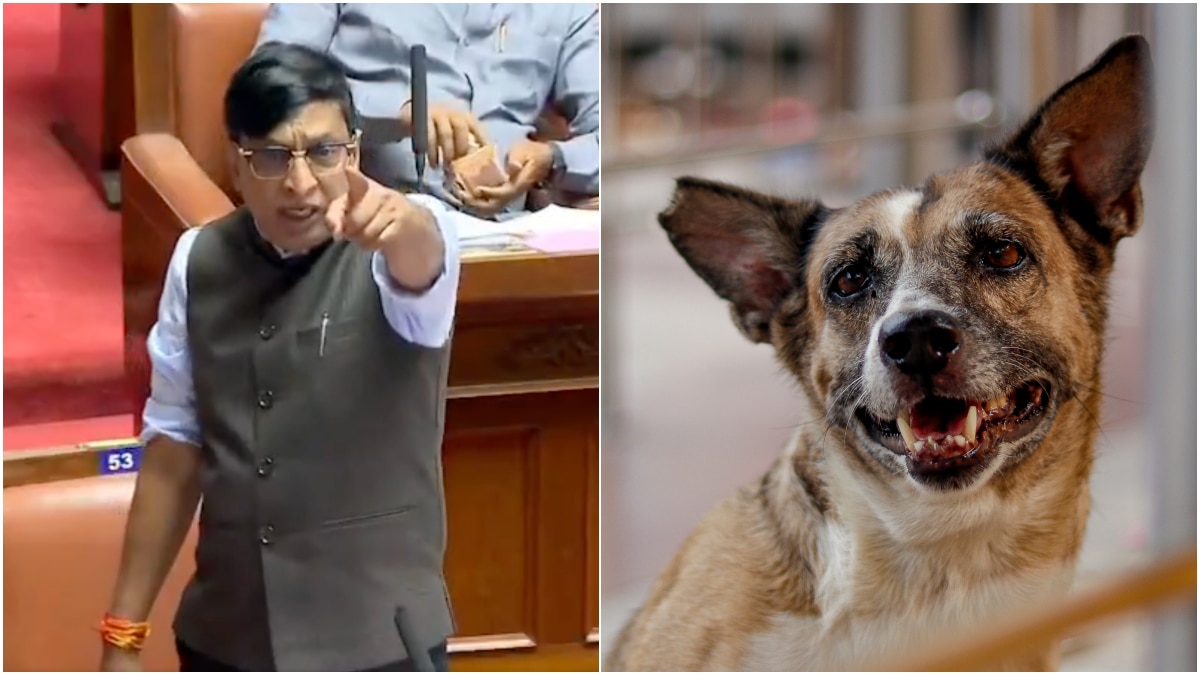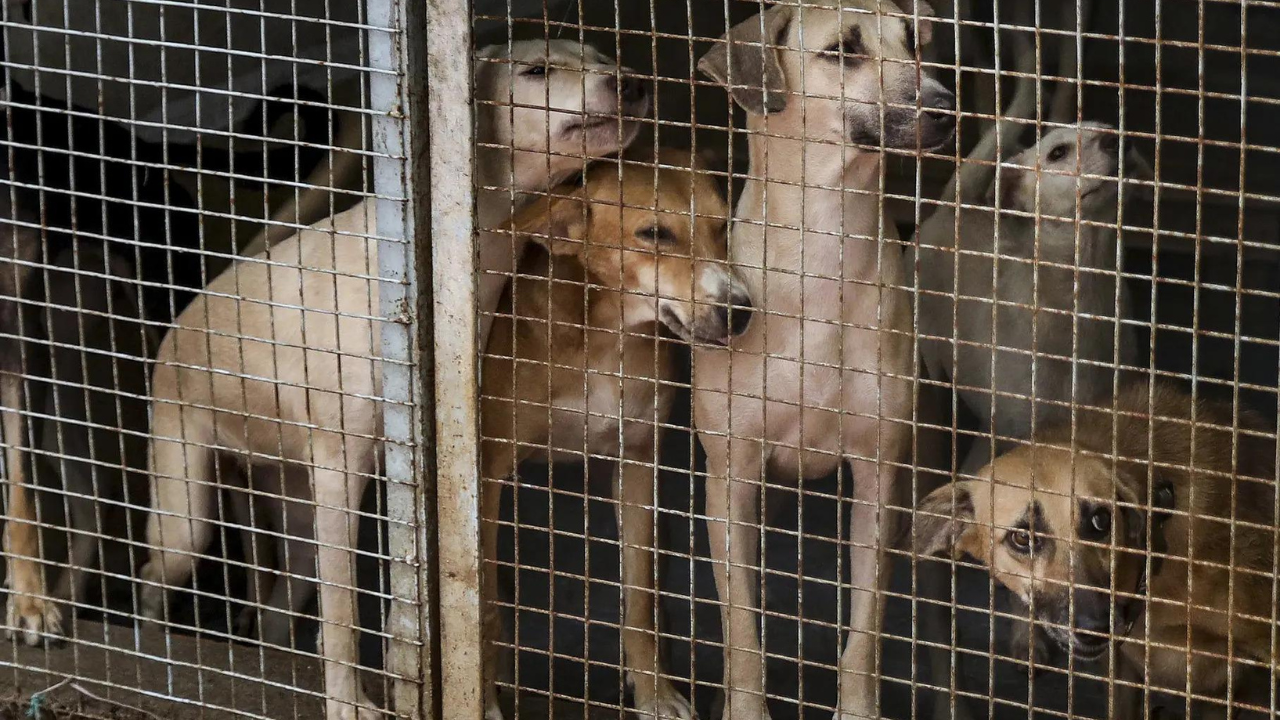In a disturbing statement that has triggered widespread outrage, a Janata Dal (Secular) jds lawmaker from Karnataka has admitted to poisoning 2,800 stray dogs and burying them under trees. The revelation came during a public address, where the legislator justified his actions as a means of addressing the stray dog menace in his constituency. While some locals reportedly supported his claim of tackling what they perceived as a serious safety threat, the majority of the public and animal welfare organizations have condemned the admission as inhumane and unacceptable. The incident has since sparked a heated debate over ethical governance and animal rights in India.
The lawmaker’s statement has drawn immediate criticism from activists and citizens alike, who argue that such actions violate multiple laws under the Prevention of Cruelty to Animals Act. Several animal welfare groups are preparing to file formal complaints, demanding criminal proceedings against the legislator. The National Human Rights Commission and the Animal Welfare Board of India have also been urged to intervene. Political opponents have seized on the statement to question the moral and legal accountability of elected representatives. The comments have further strained relations between the JD(S) and the ruling coalition in Karnataka, with calls for disciplinary action growing louder by the day.
Public outrage has intensified as more details emerge about the alleged mass killing. Reports suggest that the dogs were poisoned over several weeks and buried without following environmental protocols for carcass disposal. Critics say this points to both premeditation and administrative negligence. Residents who opposed the killings have alleged intimidation and silencing, raising concerns about the suppression of dissent in rural governance. The incident has exposed deep divisions in how communities view stray dogs—some as dangerous nuisances and others as vulnerable beings deserving protection. The resulting controversy has become not just an animal rights issue but also a political and ethical flashpoint for the state.

JDS: Animal Welfare Concerns and Legal Implications
Legal experts have stressed that the lawmaker’s admission, if substantiated, could lead to prosecution under sections of the Indian Penal Code relating to animal cruelty and public health violations. Poisoning animals in such large numbers is a punishable offense, carrying fines and imprisonment, and could also attract charges for improper disposal of remains, which can contaminate soil and groundwater. Activists have also highlighted the role of municipal bodies, questioning how such mass killings could occur without administrative oversight or intervention. They insist that humane population control measures, such as sterilization and vaccination, are the only lawful and ethical solutions.
The controversy has also ignited conversations about systemic gaps in India’s approach to stray animal management. While urban areas have seen significant efforts toward sterilization drives, rural and semi-urban regions often lack both funding and trained personnel. This creates fertile ground for extreme and unlawful measures to gain local acceptance. The Karnataka government has promised a review of its stray dog policies, and opposition leaders are pressing for stricter enforcement mechanisms to prevent such incidents in the future. The case could set a precedent for how animal cruelty by public figures is addressed, testing both the legal system and political will.
Public anger over the shocking confession has translated into a wave of street demonstrations across multiple districts in Karnataka. Protesters have been carrying placards with messages condemning cruelty and demanding justice for the thousands of dogs allegedly killed. In Bengaluru, a candlelight vigil was organized by prominent animal rights organizations, drawing participation from citizens, celebrities, and students. The collective sentiment among these groups is that the legislator’s actions not only violate the sanctity of life but also set a dangerous precedent for how those in power can misuse authority without fear of accountability.
Several legal petitions have already been filed in various courts seeking the arrest and prosecution of the lawmaker. Senior advocates have pointed out that an admission of guilt, made in a public forum, constitutes strong prima facie evidence. They argue that the failure to take immediate legal action would weaken public trust in the justice system. At the same time, the accused lawmaker has remained defiant, reiterating his belief that the killings were a necessary measure to protect villagers from stray dog attacks. His unwavering stance has further polarized the public and intensified media scrutiny.
Animal welfare organizations have also raised questions about the environmental consequences of burying thousands of poisoned dogs. Experts warn that the chemicals used for poisoning could leach into the soil, contaminating water sources and affecting local wildlife. Environmentalists have urged the Karnataka State Pollution Control Board to conduct urgent soil and groundwater testing in the affected areas. They have also stressed the importance of adhering to safe and sanitary animal disposal methods as mandated under environmental laws to prevent long-term ecological damage.
The Karnataka Veterinary Association has publicly condemned the act, calling it a blatant violation of animal health and welfare protocols. They argue that professional veterinarians should have been consulted before any decisions regarding animal control were made. Members of the association have offered to provide free sterilization and vaccination services in the region as a humane alternative. This offer has received positive attention, with activists urging the state government to fund and expand such programs to cover other districts facing similar stray population issues.
Political analysts believe that the incident could have a deep impact on upcoming local elections. In rural Karnataka, where stray dogs are sometimes seen as threats to livestock and children, the lawmaker’s actions may find some sympathy. However, in urban and semi-urban constituencies, where animal rights awareness is higher, this admission could cause irreparable damage to the JD(S)’s image. This political divide reflects broader societal tensions over balancing human safety with animal welfare in India’s evolving rural-urban landscape.


Public Outcry and Political Fallout
As protests swell across Karnataka, the JD(S) leadership finds itself in a defensive position. Opposition parties are leveraging the scandal to demand the lawmaker’s suspension and a formal investigation, framing the incident as an example of moral decay in public service. Citizens, particularly youth-led activist groups, have mobilized online campaigns to keep the issue in the public eye. With elections on the horizon, the political ramifications of this case could extend far beyond animal rights, influencing voter sentiment and reshaping the public perception of accountability in governance.

The Bharatiya Janata Party (BJP) and Congress have both seized the opportunity to target JD(S), demanding immediate disciplinary action and calling for a criminal probe. BJP leaders have accused the ruling coalition of shielding the legislator, while Congress representatives have emphasized the moral responsibility of public officials to uphold ethical standards. These political attacks have intensified the pressure on JD(S) leadership, which now faces the difficult task of containing both legal fallout and voter backlash.
In response to the public outrage, the Karnataka Animal Husbandry Department has announced plans to conduct a statewide audit of stray animal control measures. This includes a review of budgets, sterilization rates, and compliance with animal welfare laws. Officials hope that this audit will not only identify systemic flaws but also create a framework for more humane and effective population control strategies. Such measures, they argue, would prevent similar tragedies from occurring in the future while safeguarding public safety.
International animal rights groups have also weighed in, condemning the act and urging Indian authorities to uphold global standards for animal welfare. Several foreign organizations have offered financial aid and technical support for sterilization and vaccination drives. This international attention has further embarrassed Karnataka’s political leadership, with critics noting that such incidents tarnish India’s global image as a nation committed to humane values and ethical governance.
Social media has played a pivotal role in amplifying public outrage. Viral posts, videos, and infographics detailing the alleged mass killing have flooded platforms like X (formerly Twitter), Instagram, and Facebook. Hashtags demanding justice for the poisoned dogs have trended for days, keeping the issue in the national conversation. Activists have leveraged this momentum to organize fundraising campaigns for sterilization projects, legal action, and community education programs on animal welfare.
At the grassroots level, community leaders are attempting to bridge the divide between residents who supported the killings and those who opposed them. Mediation efforts focus on finding long-term, lawful solutions to stray animal concerns, including creating designated shelters and training local volunteers in humane capture methods. While tensions remain high, these discussions could pave the way for cooperative, community-driven strategies that protect both human and animal lives in rural Karnataka.
Follow: Karnataka Government
Also read: Home | Channel 6 Network – Latest News, Breaking Updates: Politics, Business, Tech & More

